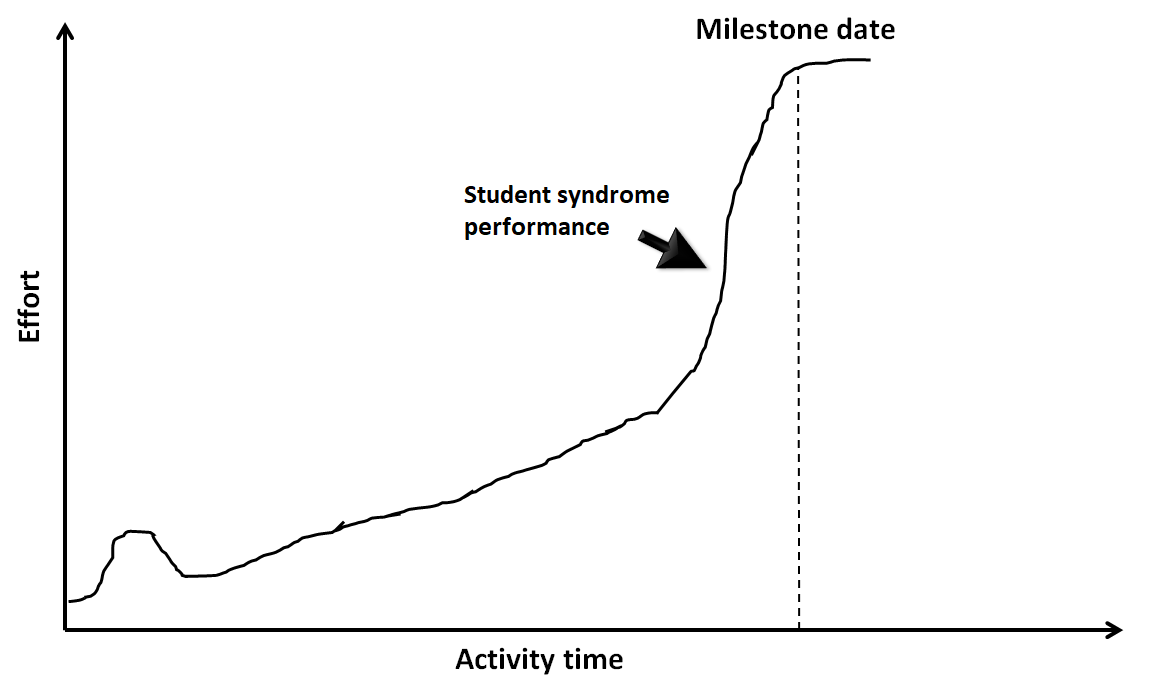
If a Task is once begun, never leave it till it’s done. Be thy labour great or small. Do it well or not at all.
My Grandmother.
LLCOOLJ (Rap Artist) on ‘The Tonight Show with Jay Leno’ in April 2013
I learned about this poem for the first time while reading the book, ‘Critical Chain Project Management, Third Edition by Lawrence P Leach’. While the author has used the poem’s reference to criticise multitasking, my attention was caught by the final words “…… Do it well or not at all.”
Take any literature resource on the topic of ‘Critical Chain Project Management (CCPM)’ and you will come across an elaborate discussion on the causes of the project delays. While Multitasking is often attributed to the Management or System related cause, the following causes of delays are attributed to team members behavioural tendencies:
- Parkinson’s Law: Simply stated the law states that the work expands to occupy the time allotted for the task completion. If a task nears completion well before the time estimate, there is a tendency among resources (team members) to continue improve completed work. This polishing of work has come to be known as Parkinson’s Law
- Anchoring or Sandbagging: Sandbagging refers to holding completed work until a more beneficial time arrives to officially acknowledge its completion. (Sandbagging – Wikipedia)
- Student Syndrome: Student Syndrome in Project Management is a term used to highlight the ever-increasing practice of leaving a lot of work until the last moment.

But the purpose of this post is not to elaborate the deteriorating effects of the Student Syndrome on the project execution. We start our professional journey, either as employee or entrepreneur, with a sincere intention to give our best. Then what makes us go to the student mode typified by fire-fighting, low self-esteem and poor work quality? The answer could perhaps lie in either or combination of following tendencies that we demonstrate in our work environment.
- We do not know, “How to say NO?”: For whatever reasons, over the years we get into the habit of tagging along. It could be either due to our upbringing or the hesitation to oppose anything with assertion. And this leads us to taking up work which we inherently do not like. I am reading an interesting book – “Essentialism – The Disciplined Pursuit of Less” by Greg McKeown. The book is all about prioritising your dreams, vision, goals and aligning your work and time with the same. And the author recommends that we stop pleasing everyone at the cost of sacrificing our dreams. However difficult it may appear at start, make a beginning and you shall start seeing a difference. It will reflect in the quality of your work and self-esteem.
- We start work without a clear brief: This situation often occurs in a staff function (off-line function) or in case of creative work (this often used as an excuse for not giving a clear brief!). Inking down a brief on paper commits the customer and the executioner to set a boundary on the scope and timeline. Even if the customer is not able to give a brief, write it for him/her and commit to the same. Penning the words makes them conscious of the uncertainty or information gap and about the consequential execution delays. A brief tempers down downstream change requests and allows you to focus on task on hand.
- We start work on a project for which there is no customer: Again, a situation that is normal in a staff function. Many times, your functional head hands you down a task or project based on a ‘germ of an idea!’. Often it is used to mask lack of knowledge or clarity. The functional head may present the completed work at an appropriate time to the CEO. This results into multiple revisions, reworks and unnecessary polishing or work. Identify such projects at early stage and get the functional head to commit to the completion.
- We do not break-down a task or project into manageable chunks: Many times, we start a long duration task without breaking it down into chunks. By failing to do so we risk running into a late change request, inadequate resource allocation and cost escalation. The customer is also anxious in such situations. It is advisable to breakdown the task into milestones. These milestones could also serve as periodic updates.
- We fail to firm up the brief as the work progress: Many of us would have worked on a product development projects where the product under development takes up a shape as per maturing generations of prototypes viz – Concept Design; Product/Parameter Design; Tooling Design and Production Design. While we are cognisant of this concept, we fail to apply the same discipline in our working. Often concept level changes are entertained at very advanced stage of project execution.
As professionals none of us would like to be blamed for delaying a project due to our Student Syndrome behaviour. But if we start working on the above points, we would free ourselves sufficiently to do a proper job. These changes would aid in building our esteem and pride. As WE Deming said, “Quality is pride of workmanship!”. To get our pride back I suggest let’s start by saying “NO”.

